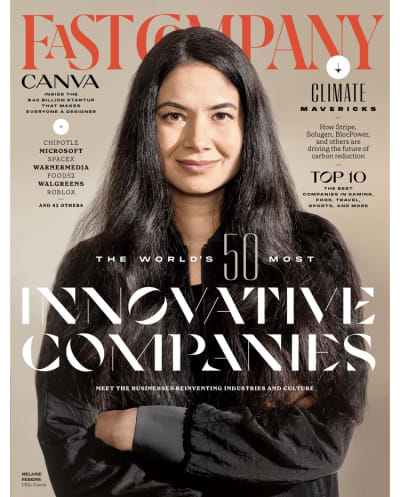If you want to hear about the power of a worth-while mission, you might talk to a nun. If you want to understand how to create shareholder value, bolster your customer base, and create a culture of innovation, you might talk to a Yale MBA. Or you could save some time by talking to Sister Barbara Rogers. A nun with an MBA from the Yale School of Management, Rogers has managed to lead a faltering, tradition-bound institution through strategic and operational changes by focusing on mission and values.
现年47岁的罗杰斯(Rogers)是一所名为牛顿乡村日间学校的全女孩学校的女校长,牛顿乡村日间学校是世界各地的130所圣心学校之一。牛顿乡村节(Newton Country Day)的波士顿(Boston)郊外的一座哥特式豪宅是一个充满现代惊喜的古特豪宅:看到一群学生坐在一个深色铺装房间的枕头上 - 在笔记本电脑上做作业并不少见。
That scene is a far cry from the school that Rogers took over in 1989. That year, the school had a $160,000 deficit, and enrollment was declining (it hit a low of 156 students in 1992). Since Rogers took over, the endowment has increased more than sixfold. Enrollment has risen to 280, and construction on both a new arts center and a group of new science labs will begin next month.
这个周转是一个案例研究,讲述的是,基本的任务感如何植根于一组持久的价值观,可以成为快速变化的引擎。罗杰斯说:“清楚我们的使命可以自由改变。”“这也使我们能够快速做出决策。我们不是反复无常的,但我们可以自由地被预测。”
How did Rogers lead such a transformation? By dusting off a long-neglected set of five goals that the school had adopted in 1975. (The goals originally came from the “Plan of Studies” that was drafted by the founder of the Society of Sacred Heart in 1805.) Rogers decided to use those goals to legitimize tough changes, to build consensus among staff members, to raise standards, and to boost morale. “We put the goals first and formed our actions around them, even though that may have seemed financially irresponsible at the time,” she says.
以目标二为例:“对智力价值的深刻尊重”。对罗杰斯来说,这意味着要让一个插槽打开,而不是接受不符合学校新严格的录取标准的申请人。过去,这也意味着提供物理学的先进课程,尽管只有三个女孩选择参加它,即使学校的资金较低。或考虑目标四:“建立社区是基督教的价值。”这意味着通过增加经济援助和提供交通来使学生团体多样化,以便来自不同地区的女孩可以参加课后活动。(在过去的十年中,少数族裔学生的数量已从17岁增加到54岁。)“我们如何负担所有这些?”罗杰斯问。“我们无力不这样做。”
罗杰斯(Rogers)最早的举动之一就是修改学校的奖励政策。在她接任之前,学校中的每个女孩都获得了某种奖项:赞扬了诸如运动成就,出色的英语论文和数学课的改进之类的成就。罗杰斯说:“女孩们不太关心奖项。”
Instead of giving an award to every student, Rogers decided to give each class just five awards — one for each of the five goals. Her intention was twofold: to raise standards, and to create rituals that focused on the school’s culture and that established the importance of its mission.
新的奖项政策标志着巨大的变化,学校的教师对此并不满意。现年49岁的高中生凯瑟琳·斯库利·霍奇斯(Kathleen Scully Hodges)现在是学校的第二任命令,主持了关于1989-1990学年政策变化的教师讨论。她回忆说:“发生了巨大的骚动。”“教师不喜欢学校的新方向。我在火线中。这对我来说是清晰的时刻:我会支持变化,还是我会支持反对派?”她确实留下了。但是许多人没有:下一学年后离开的五分之一。
那些留下来的人(或在争议之后加入)动员了目标。对于38岁的录取总监玛丽·德莱尼(Mary Delaney)来说,目标是有效的营销工具。她说:“当我到达1992年的时候,父母不知道我们的立场。”“他们听说我们是天主教徒,所以他们认为我们是一所狭och学校,而当我们实际上是天主教会的自主时。”如今,学校的目标出现在其所有公关材料上。“我们对吸引所有人不感兴趣,”德莱尼说。“要么您喜欢我们,要么不喜欢。”
这就是罗杰斯认可的那种态度。她说:“总是有一个核心群体完全相信改变学校。”“对于那些人,沿途没有发生任何视野。这真的很简单:我们选择了最高风险的方法,因为那是唯一的选择。这就是使它变得有趣的原因。”
通过电子邮件(brogers@ncdsnet.net)与姐妹芭芭拉·罗杰斯(Barbara Rogers)联系,或在网上了解有关牛顿乡村日间学校的更多信息(www.ncdsnet.net)。
